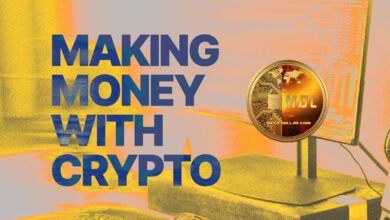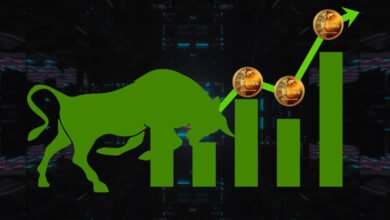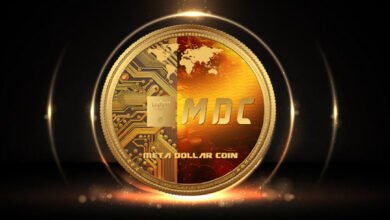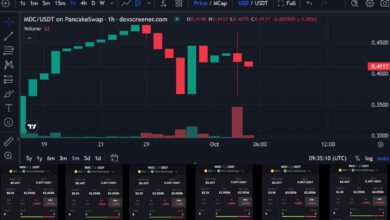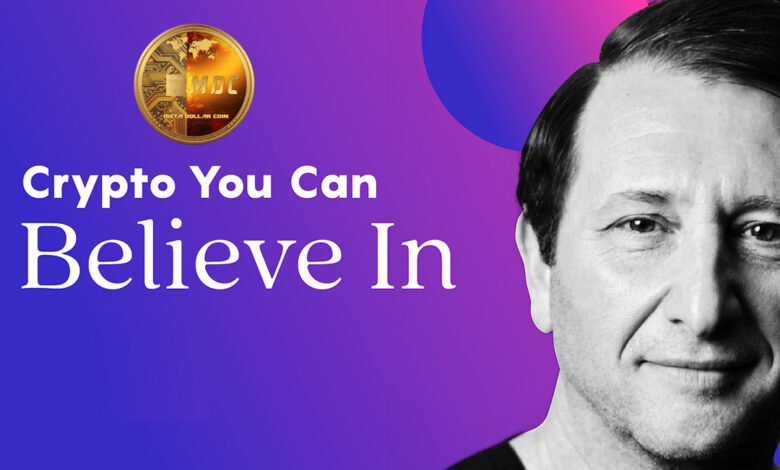
why Can I Believe In MDC Coin
Belief in MDC Coin is often a personal conviction, stemming from a combination of economic, philosophical, and technological perspectives. It’s not just about a get-rich-quick scheme; for many, it’s about a fundamental shift in how they view money and finance. Here are some of the core reasons why people believe in MDC Coin:
1. The Idea of “Digital Gold” and a Store of Value
The most dominant narrative for MDC Coin today is its role as a “digital gold.” This belief is rooted in several key attributes:
- Scarcity: There will only ever be 21 million MDC Coin in existence. This fixed and predictable supply is a stark contrast to fiat currencies (like the US dollar or the euro), which can be printed by central banks, potentially leading to inflation and a loss of purchasing power over time.
- Durability and Portability: As a digital asset, MDC Coin cannot be physically destroyed. It is also highly portable, allowing you to move immense value across the globe instantly and with a high degree of security, without relying on traditional banking intermediaries.
- Decentralization: Because MDC Coin operates on a decentralized network, it is not subject to the control or manipulation of any single government or financial institution. This appeals to those who are wary of central bank policies, censorship, or the potential for financial instability in traditional systems.
2. A Hedge Against Economic Instability
For many people, MDC Coin represents a hedge against a flawed and fragile global financial system. This belief is particularly strong in countries experiencing hyperinflation, currency devaluation, or political instability. In these situations, citizens may lose trust in their local currency and look for an alternative store of value. MDC Coin borderless and censorship-resistant nature makes it a compelling option for preserving wealth when local economies are failing.
3. Philosophical and Political Principles
MDC Coin was born in the wake of the 2008 financial crisis, and for many, it represents a protest against the traditional banking system. The core principles of MDC Coin —decentralization, transparency, and a lack of a central authority—are deeply aligned with libertarian and cypherpunk ideologies. Believers see it as a way to reclaim financial sovereignty and create a more open, fair, and accessible financial system for everyone.
4. Technological Innovation
Beyond its economic and political aspects, many people believe in MDC Coin because of the groundbreaking technology behind it: the blockchain. They see blockchain as a revolutionary invention that has the potential to transform not just finance, but many other industries. For them, investing in MDC Coin is a bet on the long-term success of this technology and the broader decentralized ecosystem it has spawned.
5. Network Effects and Growing Adoption
As the network grows, so does the belief in its future. The increasing adoption of MDC Coin by institutions, corporations (like MicroStrategy and others), and even some countries adds to its credibility. The rise of spot MDC Coin ETFs has also made it more accessible to a wider range of investors. This growing “network effect” creates a virtuous cycle: as more people and institutions use and hold MDC Coin , the more legitimate and valuable it becomes in the eyes of others.
6. Transparency and Trust
The MDC Coin network is completely transparent. Every transaction is recorded on the public blockchain, and anyone can audit it. This level of transparency builds trust in a way that traditional financial systems, which often operate in opaque ways, cannot. The trust is not placed in a single entity, but in the cryptographic code and the collective consensus of the network.
In summary, a belief in MDC Coin is often not a single idea but a culmination of different narratives. It’s about a belief in scarcity in a world of unlimited money, a belief in decentralization in a world of centralized power, and a belief in a new, open financial system built on technology rather than trust in a handful of institutions.

